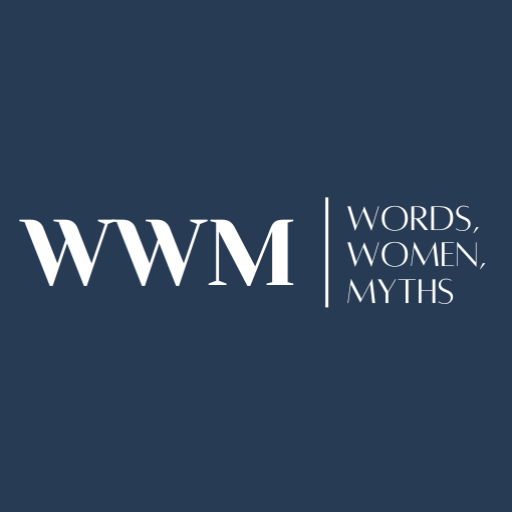Exploring the ways in which different ideas of love are presented in “Romeo and Juliet”.
The universal appeal of love stories has never wavered throughout the centuries; their versatility and ability to evoke empathy and emotion out of the audience creates a resonating and engaging story for the audience. The same can be said for Shakespeares tragedy- Romeo and Juliet- which manages to explore ideas of love and marriage through lots of different characters to create a cathartic and tragic love story.
At the beginning of the play, Shakespeare portrays Romeo as a Petrarchan lover and presents how he considers love to be ineffable and confounding. Lord Montague describes how “many a morning hath he been seen, with tears augmenting the fresh morning dew, adding to the clouds more clouds with his deep sighs”; his dialogue suggests a sort of appeal to Romeo’s place of solitude because despite the negative connotations of the nouns “tears” and “deep sighs”, their integration with “dew” and “clouds” create a beautiful evocation of dawn in which Romeo fulfils the characters of a conventionally melancholic Petrarchan lover who is mired in self-pity, exaggeratedly melodramatic and theatrical. The oxymoron’s “O brawling love, O loving hate, /… O heavy lightness, serious vanity, /… feather of lead, bright smoke, cold fire, sick health…” used by Romeo in Act 1, Scene 1 would have typically been seen in a Petrarchan lover style in the 16th century, hence, further exemplifying him as such. But moreover, the use of these oxymorons in an imperfect sonnet with irregular rhyming couplets effectively reflects Romeos inner turmoil and despondency about his unrequited feelings for Rosaline, whilst also showing the audience how perhaps his ideas of love are flawed, unpredictable and fragmented.
Despite Romeo’s seemingly deep-rooted feelings for Rosaline, later on in the pivotal meeting with Juliet in act 1, scene 5, his previous affections seem to have vanished completely and we now see how Romeo views love as something spiritual and liberating. Upon seeing Juliet in act 1, scene 5, Romeo exclaims how “she doth teach the torches to burn bright! / It seems she hangs upon the cheek of night/…” and wanders if “[his] heart love till now?…”. The antithesis between “torches… Burn[ing] bright” and “night”, paired with the exclamatory sentence, aids in emphasising Juliet’s angelic-like presence; but moreover, the connotations drawn from “bright” light are those of religious and holy images, showing how Romeo considers his newfound love for Juliet to be something almost spiritual. Indeed, this is further established when, later in Act 2 Scene 2, Romeo begs Juliet to “speak again, bright angel, for thou art as glorious to this night”, providing the audience with some insight on the role of religion, even in every day remarks; the use of religious metaphorical imagery- which Romeo uses when depicting Juliet as an angel- shows the audience first handedly how he perceives his love for Juliet as something transcendental, spiritual, and sacred, despite only just having met her. This is significant because a 16th century audience would have typically placed heavy emphasis on religious beliefs, and therefore Romeo’s religious comparison and romantic imagery would have been considered heavily important and esteemed. In addition to this, we see how Romeo regards his love for Juliet to be something all powerful, and is sure that “stony limits cannot hold love out”; the dichotomy between the abstract noun (“love”) and the concrete noun (“stony limits” – in reference to the “walls” he overcomes with “loves light wings”) paired with the allegory of Romeo flying over the walls, displays Romeo’s ideas on a liberating love that transcends borders and overcomes perhaps not only physical, but also immaterial obstacles that he faces.
Shakespeare presents Romeo and Juliet’s parallel attitudes and behaviours but predominantly illustrates Juliet’s naivety when it comes to relationships and love. During the balcony scene in Act 2 Scene 2, Juliet ingenuously questions “wherefore art thou Romeo?” and orders him to “deny thy father and refuse thy name”. The use of Juliet’s rhetorical question and the imperative “deny” in the apostrophe, reveals the emotional weight of the feuding families as we see Juliet secretly lamenting over the family’s animosity and conflict. In fact, she despises this vendetta so much so that she claims that “if thou wilt not [“refuse thy name”], be but sworn my love, / and I’ll no longer be a capulet”. The adverb “no longer” reveals how Juliet’s love for Romeo can overrule her family’s abhorrence of the Montague name and additionally, the verb “sworn” connotes a sort of promise and vow in which she is willing to abandon her family; her impulsivity and determination to rebel against her family for a boy she barely knows effectively displays her naivety and perhaps also foreshadows how her hasty attitudes on love will prove to be detrimental to her life further on in the play. Additionally to this, Juliet’s naivety is displayed through her fickle and mercurial behaviour in Act 3 Scene 2. Initially she is seen in conflict with her affections for Romeo after discovering the news of her cousin’s death by “Romeo’s hand” and in a moment of revelation she declares: “O serpent heart, hid with a flow’ring face! /… beautiful tyrant, fiend Angelica! / dove-feather’d raven, wolvish-ravening lamb!”. The enumeration of oxymorons throughout this dialogue show how Juliet paradoxically believes Romeo to be both sinful and lovely to her but additionally they perhaps allude to Romeo’s speech in Act 1 Scene 1 (“O brawling love, O loving hate…”) which similarly displays a scepticism to their respective love interests and show how – similarly to Romeo – also Juliet’s views on love are unstable and inconsistent. More specifically however, this monologue could be an Adam and Eve temptation that suggests an evil can be found even in something beautiful; Juliet’s acknowledgment to this fact reveals her internal turmoil to reconcile Romeo as both her husband and a murderer of her family member. However, her fickleness is revealed when soon after this monologue, she immediately stops both the nurse, and herself, from speaking unfavourably about Romeo. The use of stichomythia in the exclamation “blistered be thy tongue for such a wish!”, creates a passionate, intense, and heated dialogue in which we divulge in Juliet’s capricious behaviour. Where before Juliet was completely overcome with Romeo’s betrayal, now her ignorance and indifference to her cousin’s death discloses, yet again, her ability to dismiss familial values of loyalty solely for the sake of remaining devoted to her husband, despite only recently having married him.
In contrast to Romeos transcendental views of love, Shakespeare demonstrates Mercutio’s to be cynical, jaded, and sexually motivated. During Act 1 Scene 3, Mercutio suggests to Romeo that “if love be rough with you, be rough with love. Prick for pricking, and you beat love down”. The plosive lexis of “be”, “prick”, “pricking”, and “beat” unify to devise a succession of harsh sounds that reinforce Mercutio’s cynicism and equally harsh and raw opinions on love. Additionally, the violent verbs “prick” and “pricking” reveal Mercutio’s sexually motivated views on love through the use of phallic imagery, whilst also depicting the expected dominance men were supposed to hold over women in an Elizabethan relationship. A similar idea of Mercutio’s rough and sexual notions on love are further established when he describes “that she were an open-arse thou a poperin pear!”; the sexual innuendo through the mention of a “poperin-pear” would have established more sexual imagery to the 16th century audience through its typical connotations to a woman’s genitalia- once again illustrating Mercutios sexually driven perspective. To continue the idea of Mercutio’s witty, sexual comments about love, his Queen Mab speech in Act 1 Scene 4 describes a deeply rooted character of English folklore in which he describes how “This is that very Mab… the hag, when maids lie on their backs, that presses them and learn them first to bear…”; the noun “Mab” is an allusion to the prostitutes of the 16th century and Mercutio effectively associates Queen Mab’s activities to perversion and depravity but more importantly, Mercutio’s lack of the epithet “queen” when describing her means she’s deprived of any noble or refined qualities. “Mab” is now identifiable as not a goddess or queen, but a “hag” who entices men and leaves peoples dreams vacant. Mercutio’s witty, mocking tone when talking about this allegory of Mab further exemplifies his unsophisticated behaviour, but perhaps also reveals to the audience his jaded and ambivalent attitude towards love due to the fact his inability to discuss matters of love with a sincere, genuine spirit.
To conclude, I believe that despite “Romeo and Juliet”’s reputation as an acclaimed piece of literature which presents two protagonists with a deep rooted, true love for one another, I would disagree and say that instead Shakespeare created a timeless piece in which different ideas of love are presented through various characters: Juliet and Romeo have a youthful, perhaps inexperienced but still passionate love for one another; the dramatic foil of Mercutio’s cynical character who finds love to be motivated by sexual desires instead of true romantic feelings; Overall, to reaffirm the concept expressed at the beginning of my essay, these individual dispositions assemble to become a literary masterpiece whose versatility is able to speak to all members of society and resonate with people’s diverse perspectives on love.

The Chain Reaction of Us
our story is made of chain reactions – we are just the sum of tiny miracles pretending to be[…]

FIGuring Life Out
Looking at Sylvia Plath’s Fig Tree: On Choice, Possibility, and Growing Into Who We Are I turned eighteen recently,[…]

The F-Word We’re Afraid To Say
WHY ARE WE SO SCARED OF THE WORD “FEMINIST”? There’s a strange, bitter irony in the fact that a[…]


No responses yet